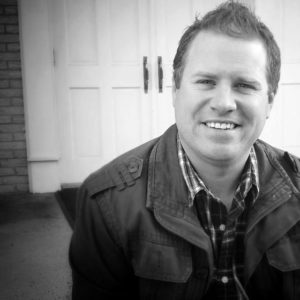By: Bob Erbig
Are You Afraid To Die?
Or are you afraid to die? I remember when I first encountered death. I was seven years old and my grandfather died of cancer. It was terrible. In fact, my parents decided I was too young to go to the funeral. However, in the span of four years, 1988 through 1992, I lost not only my grandfather but my maternal grandmother and my father. Death stared me in the face multiple times at 10 years old.
Truthfully, we never know the day or the hour or the age. You could be 15, you could be 45, you could be 95. You… don’t … know. When we encounter death, especially the death of someone close to us, it becomes associated with a number. What is YOUR Number? My father died when he was 40 years old. Ever since then—my number has been 40. That was the number I associated with death. There was a trepidation around that number and I had to work through it with the Lord. This year I turned 41 and it was surreal experience. You don’t know the day or the hour. The question is: how do we live in light of eternity?
Don’t Waste Your Youth
Ecclesiastes 11-12 unpacks the tension of youth, old age and death. Solomon offers three prohibitions to follow as we live in light of eternity. First, don’t waste your youth. Why? Life is not about you—it’s about the glory of God! The sooner you learn this lesson the greater impact you will make in the world. How do you keep from wasting your youth? Solomon offers three words. Rejoice in your youth (11:9). Remove vexation from your life (11:10). Remember your Creator (12:1). These principals are marks of a well-lived life.
Don’t Grumble in Old Age
Second, and sadly, we don’t stay young forever. The aging process catches us all—we start to grumble. Ecclesiastes 12:1 tells us to rejoice in the days of our youth, but it is a whole life principal. 12:1-7 is a poem about the aging process and it paints a sobering picture of our mortality. Our hands, arms, legs, teeth, eyes, ears, and joints all decay! This process is painful and can easily create a spirit of ingratitude and bitterness, which leads to grumbling. How do we combat this? Solomon says, “Remember your Creator!” In other words, model Creator centrality in your life! Don’t grumble in old age.
Don’t Settle For The Dust
The third and final principal in this: don’t settle for the dust. What does that mean? Ecclesiastes 12:7 contrasts the dust and the spirit. Yes, our bodies decay and return to dust—reminding us of Genesis 2. The Hebrew word for spirit is ruah, which refers to our “life breath.” The point? Our life continues beyond death. The problem? Too often people focus on the temporal not the eternal. However, eternity is forever! Yet many people seem unconcerned.
Solomon says, if you don’t want to settle for the dust: “Today is the day to remember your creator!” The only thing that truly matters in life is a relationship with God through His Son Jesus Christ. The New City Catechism captures this glorious truth:
What is our only hope in life and death? That we are not our own but belong, body and soul, both in life and death, to God and to our Savior Jesus Christ. Amen.




